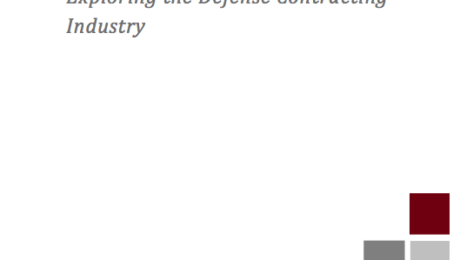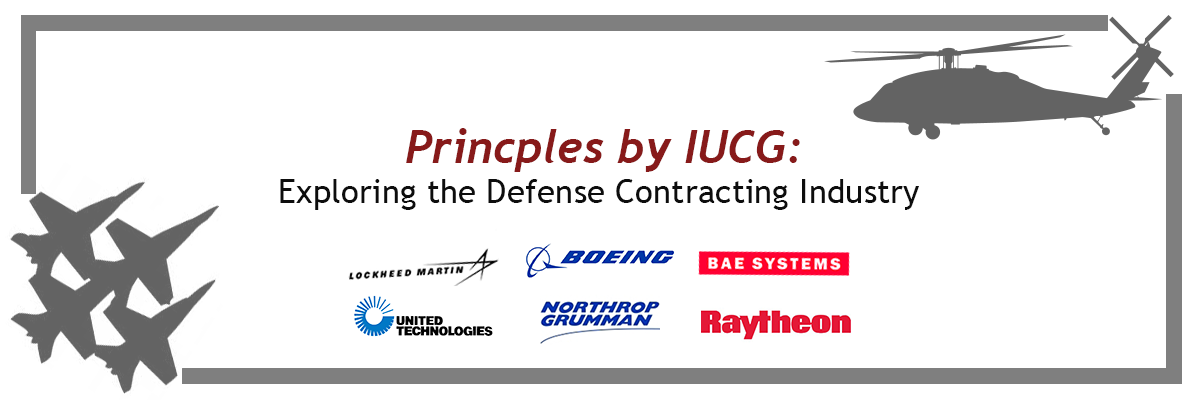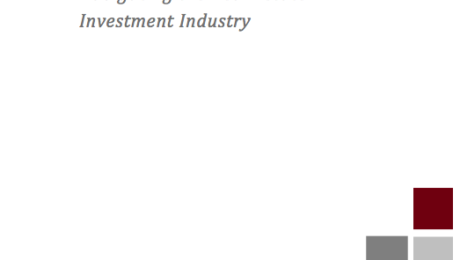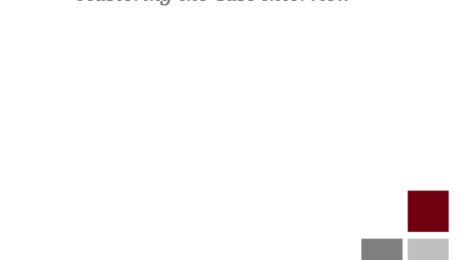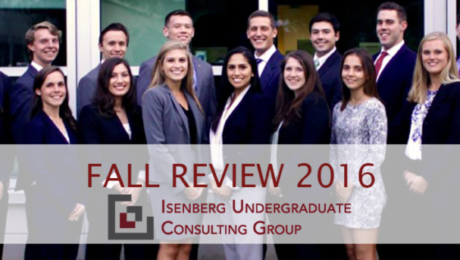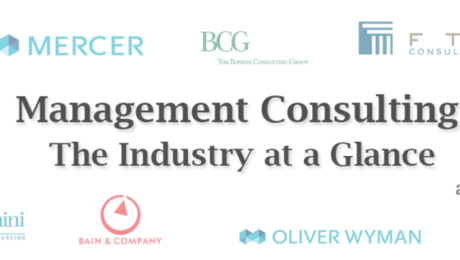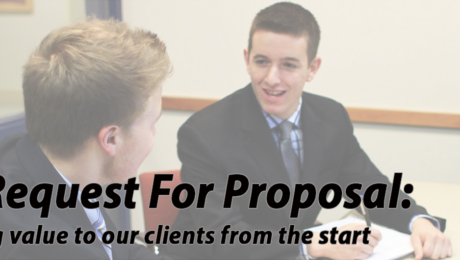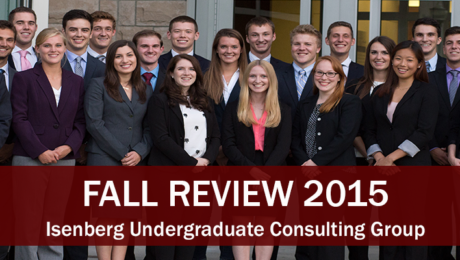Principles by IUCG: Exploring the Defense Contract Industry
- Published in Publication
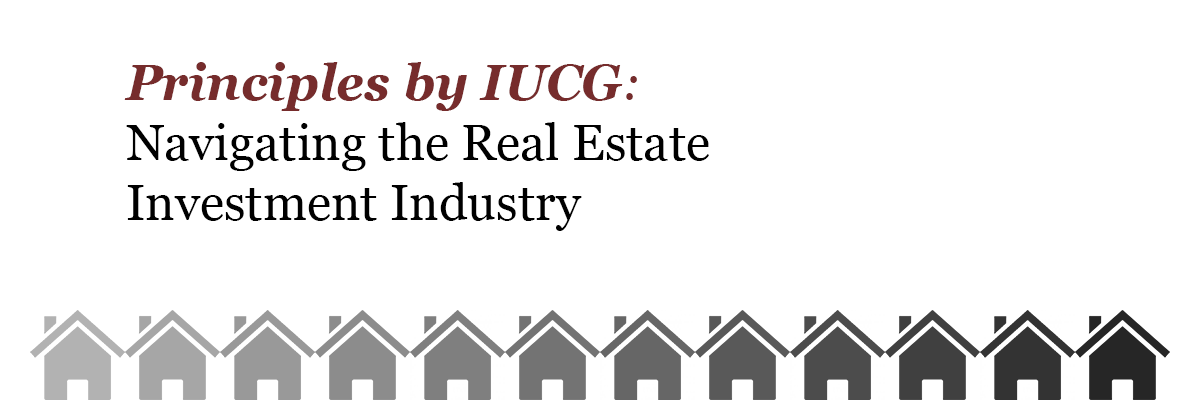
Please find our publication detailing the real estate investments industry!
- Published in Publication
Principles by IUCG: Mastering the Case Interview
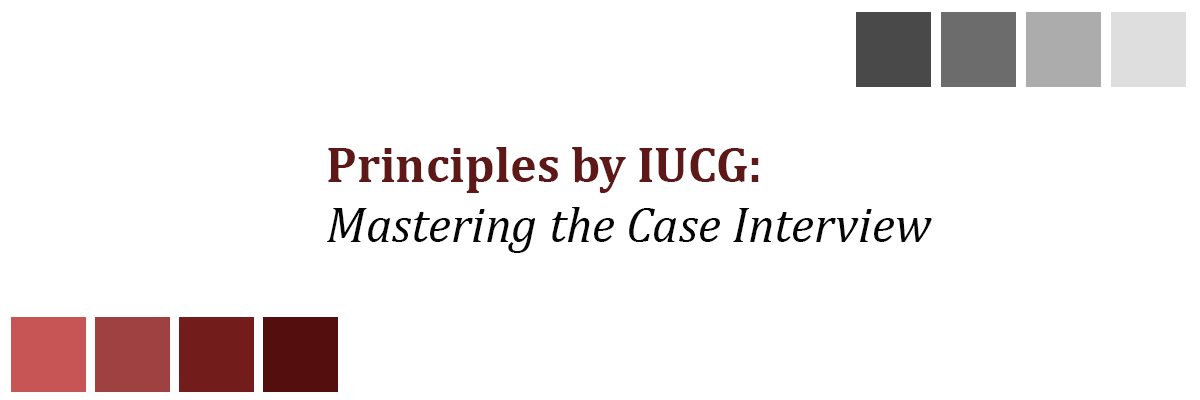
Please find our publication detailing an ideal approach for the case interview process, targeting management consulting positions.
- Published in casestudy, Frontpage Article, News, Publication, Uncategorized, Whitepaper
Fall 2016 Semester Review
Please find the Semester Review below along with the option to download a pdf version.
- Published in Frontpage Article, Publication, Uncategorized
Management Consulting: The Industry at a Glance
What is consulting?
The purpose of a consultant is to help provide recommendations for organizations to improve their performance. Consulting services can range from providing organizational change management assistance to the development of coaching skills, process analysis, technology implementation, strategy development, and operational improvement services. There are two distinct types of consultants: industry consultants and career consultants. Industry consultants typically possess over ten years of experience in a particular field, while career consultants spend their career developing the types of skills that consultants use, such as research, presentation, and analytical skills.
What does an entry-level consulting position look like?
Recent graduates of undergraduate programs often choose to pursue an entry-level consulting position. Entry-level consultants are not considered experts, and therefore fall into the career consultant category. Regardless of the consulting firm or industry, entry level roles are often responsible for creating PowerPoint slide decks to present to clients, conducting interviews, doing primary and secondary research, and otherwise assisting the engagement team. Entry level consultants may also have the opportunities to analyze relevant data or other information in an effort to better understand a client’s current state and provide recommendations for the future. While some of these functions may not be as glamorous as others, all are essential to a successfully operating team of consultants.
What are the different types of consulting?
The most common type of consulting is management consulting, and it can be split into several different branches, as depicted in the graphic below:
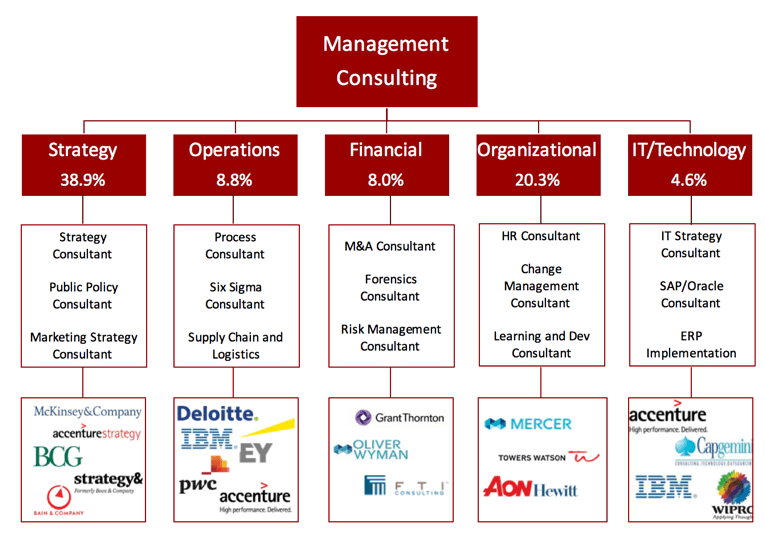
Do you want to be a consultant?
Individuals who thrive as consultants are usually driven and analytical. Consultants typically do well in high pressure environments, and are passionate about testing ideas and serving clients. Consultants often have strong people skills and are able to be flexible in continuously changing circumstances. No two days are the same—consultants are always learning and are constantly challenged by their work. While the consulting industry is not always easy to enter, it can offer extremely rewarding careers that allow individuals to learn a great deal in a short period of time. If these concepts sound exciting, consulting may be a potential career option for you!
- Published in Publication
IUCG: Internship Edition
Now that summer has come and gone, we decided to take a closer look into how IUCG’s members spent the past few months. This year’s group participated in a diverse array of programs that’s spanned several industries. We spoke with four group members about their experiences.
Brian Campbell (’19)
Internship: MassMutual Enterprise Information Risk Management
Main projects/ responsibilities: The first four weeks were centered around figuring out a way to better implement their security monitoring software within the entire risk management department, while the latter half of the program focused on overhauling their entire supplier risk program.
Key Takeaways: Brian felt that the most beneficial skill he gained was the ability to be comfortable in an environment with unfamiliar people, but still ask questions about the work and have the confidence to give an objective opinion. In general, he was blown away by the opportunity to get to see how a large corporation works from the inside.
IUCG’s Impact: IUCG provided Brian with experiences working on teams, and developing proposals.
Cole Gladstone (’18)
Internship: Zurich Insurance Distribution and Regional Management Intern
Main projects/ responsibilities: The main project that Cole worked on was a feasibility study into a market that Zurich hadn’t previously insured. His primary task was to look into the market to see if it would be advisable for Zurich to enter the space. After he completed his research, he worked with company executives and senior vice presidents to put together a go-to-market strategy.
Key Takeaways: Cole realized that communication is key when working in a big company. Failure to communicate effectively can be the largest limiting factor when it comes to the success of a project, especially in regards to development. He discovered this from personal experience after he began a new assignment without updating his managers on his previous project.
IUCG’s Impact: Cole approached projects at work in a similar manner with which he would approach a case study from IUCG. The strategy-based thinking that he developed while in the group aligned with that of internal consulting departments within large companies.
Kara Knights (’17)
Internship: Grant Thornton Business Advisory Services Intern
Main projects/ responsibilities: Kara gained experience working on project management for an IT implementation for the duration of the summer. She provided all of the support services including updating status and incident reports, and sending them out to management. In addition, Kara helped with change management by updating handbooks with new procedures for the new system.
Key Takeaways: During her internship, Kara learned how to interact with a client on a daily basis, as she spent most of her time on-site. She quickly discovered the importance of being personable, while remaining professional.
IUCG’s Impact: Going into the internship Kara felt that IUCG gave her the proper knowledge and expectations of business consulting, as it can be very different from an industry position.
Sara Clemente (’17)
Internship: EY’s Risk Advisory Program
Main projects/ responsibilities: During her time at EY, Sara worked on three separate engagement teams performing risk testing, attending meetings and process walkthroughs, assisting on trainings and working on client deliverables.
Key Takeaways: One thing that stood out to Sara about EY was the level of mentorship that she experienced. Whether it was from an executive director, her formal counselor, a peer mentor, or really anyone in the office, she saw the culture as open and honest. As a final comment on her experience Sara felt that, “Finding a cultural fit is a bigger deal than some people really acknowledge. A big firm is going to have something that you want to do, but it’s about finding that cultural fit.”
IUCG’s Impact: Sara felt that IUCG provided her with a vital set of soft skills, including the abilities to think critically, work with teams of a similar size, and ask effective questions in a client meeting.
- Published in Publication
Spring 2016 Semester Review
Please find the Semester Review below along with the option to download a pdf version.
- Published in Frontpage Article, Publication
Management Consulting from the Perspective of BCG Partner, Brian Roughan
Management consulting is a profession where thrill comes from solving a new, complex problem every single day. This insight came from UMass alumnus Brian Roughan, a current Partner and Managing Director at Boston Consulting Group (BCG). In late March, Mr. Roughan spoke to IUCG and other top clubs about his journey from UMass to BCG, the telecommunications industry, and strategies to break into consulting.
Graduating from UMass in 1998 with a degree in Accounting, Roughan worked for Arthur Andersen in technology consulting. In 2005, he completed his MBA at MIT Sloan School of Management. Since then, he has worked at BCG where he is now a Partner in the Technology, Media & Telecommunications Practice. Currently, this practice is one of BCG’s largest growth engines and is a significant aspect of their global experience with 2,500 cases worldwide in the past five years.
Roughan opened the presentation with a quote from BCG founder, Bruce Henderson,
“Consulting is the most improbable business on earth: Successful firms hiring people who are fresh out of school to tell them how to run their business, and paying millions for the advice…What are you doing for them that makes this possible?”
Not uncommonly, clients with thirty plus years of experience seek help from consultants who have a third or less of that experience; therefore it is essential that the content carry superior value. As a result, it is essential to gather “ideas that win.” Although BCG is a global company, each office only has about 50-200 consultants, which drives a team-oriented environment. This philosophy is also demonstrated by the diamond structure that all BCG practices adhere to: one partner, one project leader, two consultants, and one associate.
The projects that Mr. Roughan focuses on are related to the telecommunications industry. One of the more notable cases he worked on was the launch of a groundbreaking artificial intelligence product. It was up to his team to decide how the client should best introduce such a powerful product into the marketplace. They begun by surveying a multitude of potential markets in order to understand potential adoption ad profitability. The outcome was remarkable in that Roughan was able understand how a breakthrough technology could be brought to market as a solution. The question continues: What is AI’s role in the world, and how is it impacting society and business as a whole? Roughan constantly analyzes the growing stream of emerging technology trends and looks to the future.
Roughan also provided the group with tips on life after graduation, and the ideal path to BCG. He stressed the importance of taking the GMAT early and striving for a top 10% score, which would open up top grad school possibilities. Another crucial component to landing an interview at top firms is mastering the case interview. Not only are case interviews the preferred method of screening candidates for several top firms, but they also act as great skill generators. Working through the problem in a logical and systematic way allows the individual to develop their critical thinking skills to ultimately extract value from the situation. In addition, the ability to decompose a problem into smaller components, while bringing in a unique and creative perspective is another fundamental component of an elite job candidate.
Collaborate. Solve. Accelerate. The values that we strive for within IUCG are some of the same values that are lauded in top tier firms. Recruiting life long learners—members who are dedicated to constantly improving their knowledge, is a similarity seen in both Boston Consulting Group and IUCG. The egalitarian structure of BCG promotes a feedback loop, which provides constant performance evaluations to consultants. Informal reports, formal reviews, and counselor meetings ensure constant development within the organization. Similarly, IUCG conducts an official review of our members each semester to affirm that the entire group is communicating effectively with one another and functioning to the best of our ability. IUCG core activities develop and grow the skills for success in consulting, such as case interview practice, research presentations, structured thinking, and real-world problem solving.
- Published in Publication
The RFP: Providing value to our clients from the start
The Isenberg Undergraduate Consulting Group is back and better than ever, with a major improvement that streamlines the preliminary stages of the relationship with a prospective client. For this semester, IUCG designed and implemented a “Request for Proposal” which allows both IUCG and the potential client to enter the engagement on the same page.
Located under the “Our Work” tab on the IUCG website, clients can select to begin their project inquiry. Below is a brief overview of our project selection process.

The addition of the RFP brings more structure and consistency to the project process which will increase the value for everyone involved. Some key aspects of this document are a general overview, employee information, the companies’ strengths and weaknesses, marketing tactics, finances, and project specifics and includes questions which allows the group to gain a better understanding of the company prior to the engagement. The RFP will be open and available for potential clients to submit, year round, however in order to be considered as a project, the RFP must be submitted at least 1 week prior to the start of the new academic semester. Once IUCG has received the RFP, and the scope and vision of the project aligns with the group’s vision, the client will meet with leadership and the project manager to better define the project. The group is confident that this new proposal system will only improve the quality of our work.
Our guarantee is that as the client, you have the final word. We believe that the quality of our work speaks for itself. Please check out our case studies about our previous engagements under the “Our Work” tab on our website.
Just as the group selects clients to work with each semester, our analysts and project managers undergo a rigorous, and highly competitive process to be join the group. From this pool of students, IUCG identifies the right team of analysts that fit your organization’s specific needs. Our internal development initiatives, which involves lectures from alumni who work at top firms, case work and technical development workshops, encourages all project members to continuously sharpen their skills.
IUCG’s culture is one of continuous improvement and development. It is in the nature of that culture to consistently improve processes like the RFP in order to provide the most value to clients as well as our members.
- Published in Publication
Fall 2015 Semester Review
Please find the Semester Review below along with the option to download a pdf version.
- Published in Frontpage Article, Publication

